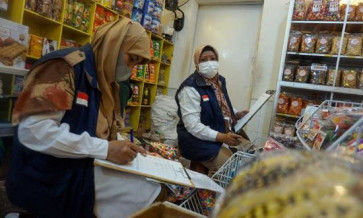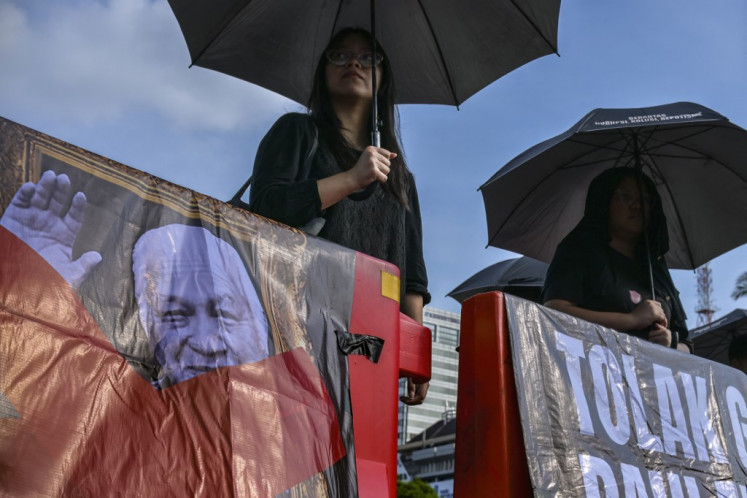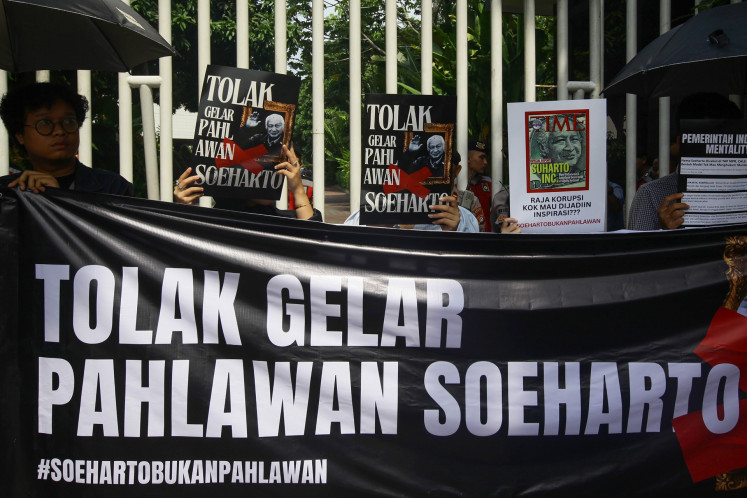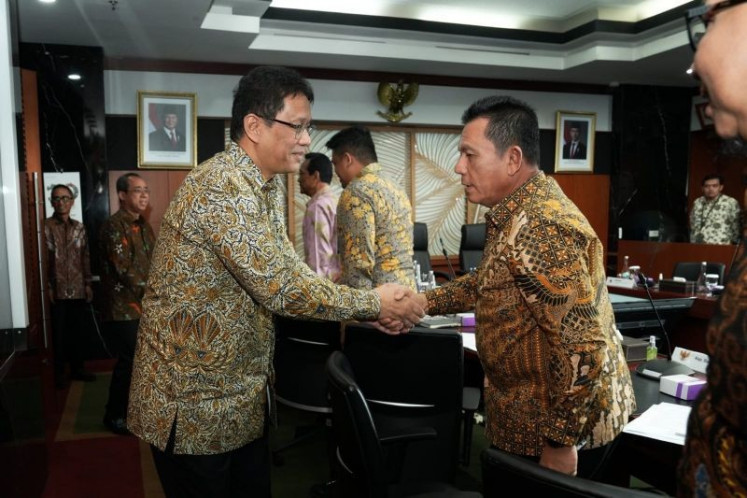Popular Reads
Top Results
Can't find what you're looking for?
View all search resultsPopular Reads
Top Results
Can't find what you're looking for?
View all search resultsInsight: Treating Papuans as citizens instead of targets in Indonesia's killing field
The shooting of unarmed civilians took place on Dec
Change text size
Gift Premium Articles
to Anyone
T
he shooting of unarmed civilians took place on Dec. 8 in Enarotali, the capital of Paniai regency in the province of Papua. Four were killed on the spot and roughly 17 were wounded. All the victims were indigenous Papuans.
The shooting occurred when hundreds were demonstrating by performing a traditional dance in front of a military office in Enarotali, demanding an explanation for the alleged torture carried out by Indonesian military members of a young Papuan on Sunday night, Dec. 7.
Since Papua was incorporated into Indonesia in 1963, Papuans have been targeted in all military operations aimed at eradicating Papuan separatism. Consequently, Papuans have been the victims of killings for the past 51 years ever since Papua's integration.
The Paniai shooting was simply the latest example in a long history of violence, demonstrating once again that indigenous Papuans are not treated as citizens, but rather as Indonesia's enemy who must be eliminated.
Despite being Indonesian citizens for more than five decades, they are still seen as outsiders in Indonesia. Their citizenship is not fully recognized yet, at least on the practical day-to-day level.
Instead of respecting them as mutual owners of the Republic of Indonesia, they have been treated as enemies who have been trying to break the Indonesian nation into pieces. Hence the justification that they can be killed at anytime.
Therefore, some Papuans describe themselves as illegal passengers in a ship called the Indonesian Republic. As they are considered stowaways, they are always suspected as troublemakers with the potential power of sinking the Indonesian ship. Consequently, they must always deal with the security forces.
Some other Papuans describe themselves as uninvited guests in a house called Indonesia. Despite recognizing them as the owners of the house, they are treated more as uninvited guests suspected of intending to burn down the whole house. Therefore, they never feel at home in Indonesia for they always deal with Indonesian security forces.
Despite government claims of implementing and trying to improve a welfare approach in Papua, the Paniai shooting clearly reveals that the security approach is still being applied on the ground. Consequently, Papuans are still vulnerable for they can be easily killed, even without reason, at any time and anywhere in the western half of the island of New Guinea. Therefore Papua remains Indonesia's killing field even under the leadership of democratically elected President Joko 'Jokowi' Widodo. More indigenous Papuans are expected to be victims of human rights violations.
It is now a challenge for President Jokowi to transform Papua into a 'land of peace'. Papua's transformation demands a conflict-prevention policy that can protect the region from the same types of shootings and other forms of recurring violent crime. Such a policy is urgent. The absence of such a policy will perpetuate the status of Papua
as a killing field.
It is important to remind the government not to monopolize the whole process of creating a conflict-prevention policy for Papua. There are other stakeholders who have to be included in the discussions as well.
There are nine stakeholders: indigenous Papuans, migrants to Papua, the local governments, the central government, the Indonesian Military (TNI), the Indonesian Police, multinational and domestic private companies exploiting natural resources in Papua, the National Liberation Army of West Papua (TPN PB), the armed wing of the Free Papua movement (OPM) and Papuans in the diaspora. All of them should be included in discussing a conflict-prevention policy. Each of them should be consulted throughout the process of making
of the policy.
The indigenous Papuans, more particularly, should not be excluded from the policy-making. Indeed, their involvement will push the government to change its opinion about them. The government, including its military and police, should not treat the Papuans as foreigners or illegal migrants from other countries. They should not be treated as members of a separatist movement. There must be full recognition of their Indonesian citizenship. Such recognition will help the government to include the Papuans in the process of drafting the conflict-prevention
policy.
It is necessary to develop an inclusive mechanism to work out a conflict-prevention policy for Papua. President Jokowi is encouraged to appoint one person, either the Vice President or one of the ministers, to represent the government in leading the process of consultation with all the mentioned stakeholders. The appointed person, in collaboration with some selected figures, could set up an inclusive mechanism that could provide safe spaces for each stakeholder to participate fully in the discussion of the content of the conflict-prevention
of policy.
By doing so, they would produce a policy that is jointly discussed and agreed to by all parties concerned. They would, in turn, own the policy resulting from the consultations because they were included in the policy-making process. All the stakeholders, then, would be fully involved in implementing, monitoring and supervising the policy.
_______________
The writer is a lecturer at the Fajar Timur School of Philosophy and Theology and coordinator of the Papua Peace Network in Jayapura










